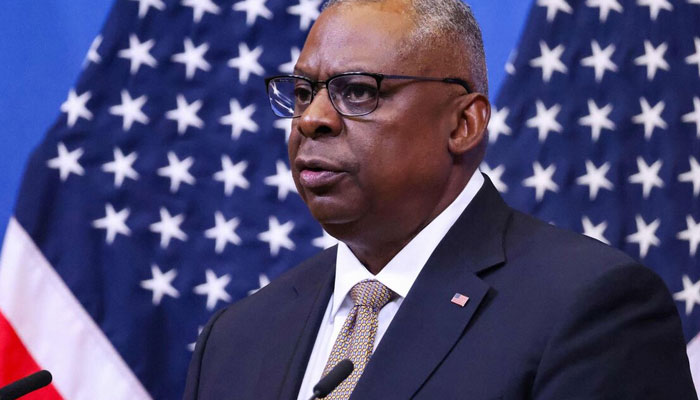
Lloyd Austin was reported by hospital to be recovering positively despite experiencing complications related to his December 22 prostate cancer treatment

US Secretary of Defense Lloyd Austin has been admitted to Walter Reed National Military Medical Center after developing a urinary tract infection following a surgery he underwent in December to treat prostate cancer.
The revelation of his hospitalisation surfaced only recently, sparking widespread criticism over the Pentagon’s secrecy surrounding the situation, even leaving President Joe Biden and Austin’s deputy uninformed for days.
Austin, aged 70, a key figure in the US military hierarchy, was reported by the hospital to be recovering positively despite experiencing complications related to his December 22 prostate cancer treatment. These complications included severe abdominal, hip, and leg pain, along with persistent nausea. Following a diagnosis of a urinary tract infection, Austin was transferred to the intensive care unit on January 2.
The hospital’s statement, signed by Dr John Maddox and Dr Gregory Chesnut, detailed that further examinations revealed abdominal fluid collections hampering the function of his intestines, necessitating the insertion of a tube through his nose to alleviate stomach drainage. Despite the challenges, the medical team at Walter Reed remains optimistic about Austin’s recovery, highlighting that the infection has cleared, although cautioning that the process could be gradual.
Austin’s hospitalisation poses challenges due to the nature of his responsibilities, which demand immediate availability to handle national security crises. His need to be constantly accessible for secure communications in the event of emergencies, such as a potential nuclear threat, presents logistical hurdles while confined to a hospital bed.
Amidst the furor over the delayed disclosure, President Biden faced backlash. Questions arose about the Pentagon’s failure to inform him about Austin’s initial December treatment for what was described as an elective procedure, raising concerns about the classification of prostate cancer treatment as elective.
Calls for Austin’s removal from office by some Republicans, including former President Donald Trump, echoed, yet both the Pentagon and the White House reiterated Austin’s continuation as the defence secretary.
Amidst this unfolding situation, Air Force Major General Patrick Ryder emphasised Austin’s dedication to recuperation while remaining steadfast in executing his duties as secretary of defence.